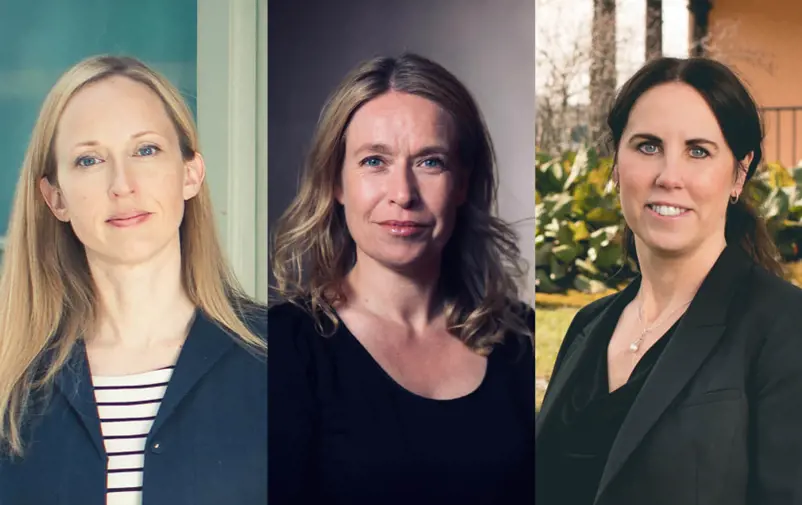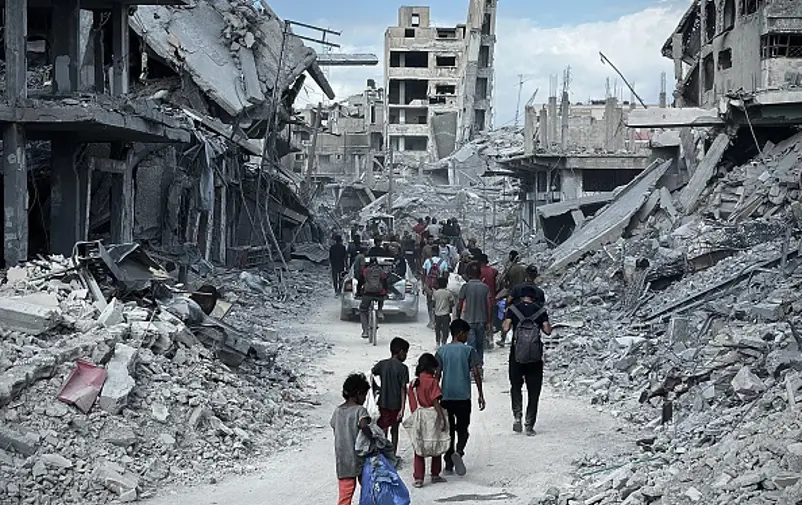Research has to reach out with results that can be put into action
After 20 years with the women, peace and security agenda we are still far from the goals where women’s participation in peace processes is a key issue. The UN Secretary General has called on international actors to look into their ways of working. To what extent can research help us develop the work for peace and security to become more efficient?This week, FBA launched a series of research briefs in cooperation with the Peace Research Institute Oslo (PRIO) and UN Women, the United Nations entity dedicated to gender equality and the empowerment of women. The 20th anniversary of the UN Security Council Resolution 1325 offered an opportunity to present new research of relevance to the women, peace and security agenda.
– In order to carry out the work efficiently it is important to know what the world looks like, the reason behind it and where to allocate the resources, says Mimmi Söderberg Kovacs, head of the Research Unit at FBA, who has been part of the editorial board.
One of the co-editors for the brief series is Louise Olsson, senior researcher at PRIO, who started FBA’s research working group on women, peace and security in 2009 and nowadays is a member of the group. She reports that gendered statistics and better methods to collect materials increase possibilities for actors working with peace and security to evaluate their working methods.
– We often use simplified models. It takes advanced knowledge to be able to strengthen preconditions to increase women’s participation in peace processes and realize the measures needed for this to happen, says Louise Olsson.
The risk for armed conflict is sometimes claimed to be lower in equal societies, and the chances of sustainable peace increase when women are part of peace processes. Louise Olsson confirms that research more and more points in this direction:
– One reason why societies that invest in the participation of both men and women are more peaceful than societies that discriminate is that they become stronger, have more resources at hand and can deal with conflicts that arise in another way.
According to her, stereotypical explanations about men being more violent are less credible. It is actually difficult to recruit men to armed groups. But perhaps negative ideals of masculinity and sexism – norms that may be prevalent in unequal societies – can contribute to increased violence and facilitate mobilization of young men.
Lessons learnt from Colombia
Louise Olsson has contributed to the research brief that examines the implementation of the peace agreement in Colombia, a process often referred to as a success story in terms of the role of women in peace negotiations and commitments to women’s rights and gender equality in the peace agreement. The text builds on the systematic collection of information about the development at University of Notre Dame, a unique collaboration between researchers and peace workers.
– We have become better at formulating gender stipulations in peace agreements but it is hard to implement them in reality. The lack of clear goals or women’s organizations lack of sufficient resources to put pressure on decision makers to implement gender stipulations are part of the problem, she says.
Desirée Nilsson is Associate Professor in peace and conflict research at Uppsala University, and member of FBA’s research working groups on mediation and peace operations. Together with her colleague Isak Svensson she has studied how different civil society organizations work for peace, to identify how they can support or oppose each other. In general, previous research has focused on the warring parties or international peace operations.
– We have looked at the various forms of peace work that youth groups, religious actors, trade unions and women’s organizations do. Participation at the negotiation table, in manifestations and parallel forums for negotiations, both official and unofficial, but also other roles that one can have in a peace process.
– If peace agreements include civil society actors, there is a higher chance for sustainable peace. Women’s organizations are important actors in civil society, Desirée Nilsson says.
There is a misconception that the women, peace and security agenda derives from western norms about gender equality. In fact, large parts of the agenda have been pursued by women from conflict-affected areas demanding recognition for their work with peace and security.
Women’s involvement in conflict resolution is manifested in many ways, the most common being to participate in negotiations and protests.
– Liberia and Sudan are good examples of how women’s organizations can contribute to conflict resolution and peace through engaging in protests and demonstrations, says Desirée Nilsson and continues:
– Unfortunately, there is still work to do. Only in five per cent of the cases we studied have women’s organizations had a seat at the negotiation table, which is remarkable.
Mimmi Söderberg Kovacs wants to bridge research and practice, and FBA gathers researchers, decision-makers and professionals working with peace and security in the field on a regular basis to exchange experiences.
– These are complex issues with no easy answers. In this world of alternative facts, access to scientific evidence is crucial, insofar it exists, and to try to disseminate it, says Mimmi Söderberg Kovacs.
Despite all knowledge there are several difficult conflicts that we have not managed to solve for a long time, for example in Afghanistan, Syria and the DRC. Conflicts that we thought were solved re-emerge and new conflicts flare up.
– The emergence of authoritarian leaders around the world and new conflict patterns, as the appearance of global jihadist movements, bring new challenges that we have to deal with. There are also other interests at stake related to power and influence, Mimmi Söderberg Kovacs notes.
Here you can find all research briefs:
Understanding the Implementation of Gender Stipulations in Peace Agreements
Prevention and Resolution of Communal Conflicts
UN Peacekeeping Operations and Peacekeeping Dividends
Women’s Post-War Economic Empowerment








 >
> >
>

